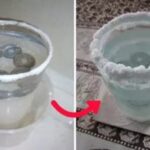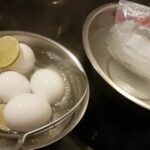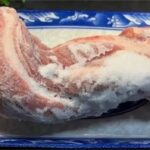Salt Dissolves Grease in Pipes
Salt is an effective agent in breaking down grease build-up, especially in drains. If you notice a clogged sink, try pouring half a cup of salt down the drain, followed by a cup of white vinegar and baking soda. The salt will help dissolve the grease, allowing it to flow more easily when you flush it with water. Remember to thoroughly flush the pipes after using salt.
Preventing Tree Roots from Invading Pipes
When trees are deprived of water, their roots tend to seek out the nearest water source, such as sewer lines. To prevent root intrusion, you can pour salt down the drain as it is a substance trees dislike. Doing this a few times a year will help deter root invasion.
Salt Repels Drain Flies
Drain flies thrive in moist, food-rich environments, such as clogged drains. However, you can deter these pests by pouring salt down the drain, which not only prevents them from nesting but also helps eliminate them.
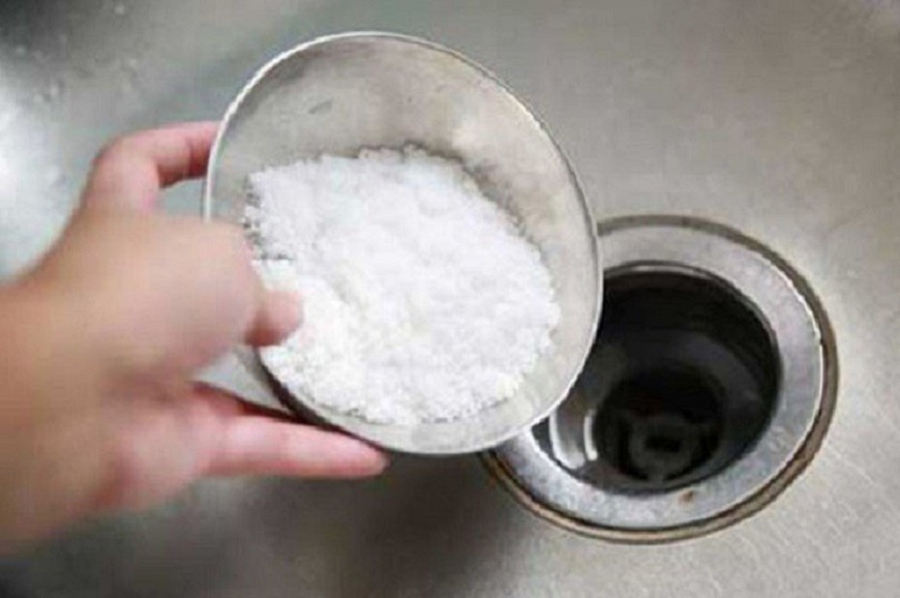
Drain flies thrive in moist, food-rich environments, such as clogged drains.
Salt Softens Hard Water
Hard water contains high levels of minerals like calcium and magnesium, which can leave residue in pipes and appliances like water heaters and faucets. Pouring a small amount of salt down the drain and leaving it overnight can help soften hard water, extending the lifespan of kitchen and bathroom fixtures.
Caution: As salt is corrosive, use it sparingly and always flush pipes thoroughly after using salt. When using salt to soften water, avoid letting it come into contact with the main water supply, as high sodium levels can be harmful to health, especially for individuals with hypertension or organ-related issues.
Using Boiling Water
Boiling water is an effective method for clearing clogged drains and is commonly used to address grease and food debris clogs in kitchen sinks. You can use boiling water to unclog bathroom drains by pouring it directly into the floor drain, helping to soften and dissolve built-up grime. For added effectiveness, you can mix in a little lemon juice with the boiling water. Remember to wear a mask to avoid inhaling any unpleasant odors from the drain.
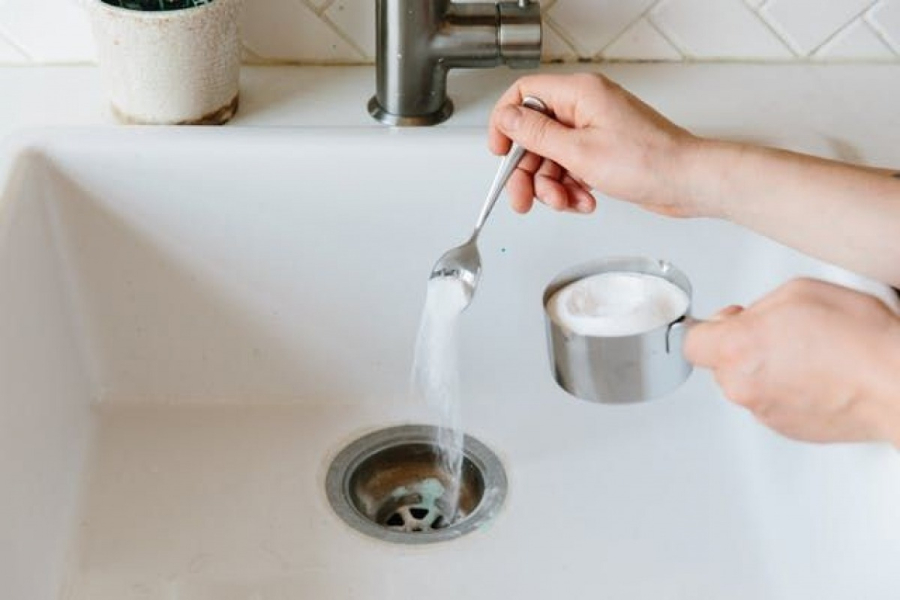
Boiling water is an effective method to clear clogs, often used for grease and food debris in kitchen sinks.
Using a Coat Hanger
This is a simple and effective method. Straighten a coat hanger and bend one end to create a hook. Wear rubber gloves and have a bag ready for the debris. Remove the drain cover if necessary and set it aside safely. Then, gently lower the hooked end into the pipe and use it to “fish” out obstructions. Once you feel you’ve removed enough debris, slowly pull out the hanger and flush the drain with water to check the results.
Using a Plumbing Snake
If you frequently experience clogs, consider investing in a plumbing snake. This tool is designed with a stiff blade at one end and a rotatable handle at the other. By turning the handle, the blade twists and captures debris, pulling it out of the pipe. Gently twist the snake clockwise until you feel resistance at the clog. Avoid forcing it further to prevent pipe damage.
Using a Plunger
A plunger is a handy tool for unclogging toilets and sinks. You can easily find one at hardware or plumbing supply stores. Position the plunger so that it covers the drain opening, then slowly push it down to create pressure before pulling it up sharply. Repeat as needed until the drain is clear.
Using Drain Cleaning Powder
You can purchase drain cleaning powder from grocery or plumbing supply stores. Mix the powder with water in a bucket or pail, and then pour it directly into the clogged drain. If there is standing water in the pipe, you can sprinkle the powder directly onto the surface. For best results, wait for about one to two hours or follow the package instructions, then flush the drain with water several times to clear any remaining residue. For optimal effectiveness, consider leaving the powder overnight before flushing.
The Haunting Season: A Pinch of Salt to Ward Off Evil and Misfortune
The seventh lunar month is a time of spiritual significance for the Vietnamese, who believe that offerings of rice and salt must be made to appease the spirits and ward off any disturbances. This tradition is a beautiful reflection of the culture’s deep respect for the supernatural and the importance of maintaining harmony between the living and the dead.

